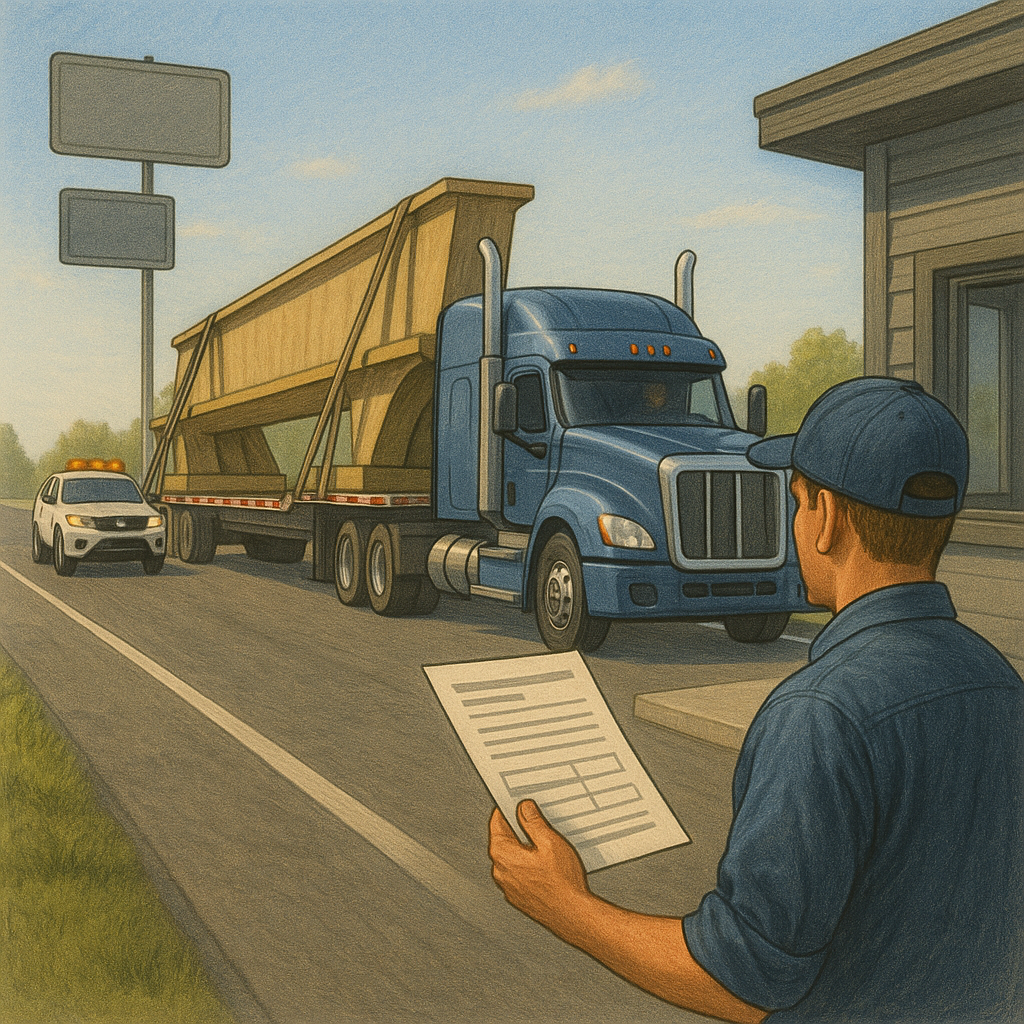If you’ve ever Googled what states require fuel permits before heading out on a long-haul interstate run, you’re not alone—and you’re smart. Navigating fuel permit regulations isn’t just a compliance checkbox; it’s foundational to avoiding hefty fines, delays at weigh stations, and legal headaches that no fleet manager wants on their desk.
At Reliable Permit Solutions, we field this question all the time: What states require fuel permits, and how do the rules differ depending on your vehicle configuration or route? That’s why we’ve broken it all down in one place—this is your comprehensive, millennial-friendly, expert-driven guide that doesn’t just skim the surface. Let’s hit the road.
Understanding What States Require Fuel Permits
The first thing to know is that fuel permits are tied closely to the International Fuel Tax Agreement (IFTA), which covers most U.S. states and Canadian provinces. But not every vehicle qualifies under IFTA, and not every state treats non-qualified vehicles the same. So, what states require fuel permits depends largely on your vehicle’s specs and travel patterns.
Weight Thresholds: States That Require Fuel Permits Based on Gross Weight
Most states require a fuel permit if your vehicle exceeds 26,000 pounds gross vehicle weight (GVW). But some are more nuanced:
- California, Texas, and New York adhere closely to the 26,000 lb IFTA standard.
- Oregon, however, requires a separate fuel tax report for vehicles over 26,000 lbs, even if you’re IFTA-registered.
- Nevada doesn’t allow temporary fuel permits beyond a specific tonnage threshold—requiring a permanent permit instead.
Knowing what states require fuel permits by weight saves time and regulatory confusion, especially if you’re not IFTA-qualified.
Axle-Based Triggers: States That Look at Configuration
Some states determine fuel permit needs based on the number of axles:
- If your vehicle has three or more axles, even if it weighs under 26,000 lbs, you’ll likely need a fuel permit in most states.
- Arkansas and Kentucky, for example, are notorious for targeting triple-axle rigs for permit checks, regardless of GVW.
In other words, what states require fuel permits often hinges on your axle count as much as your weight.
Universal Requirements: States That Require Fuel Permits for All Commercial Vehicles
A few states play hardball and mandate fuel permits for nearly every commercial vehicle crossing their border, regardless of size:
- Connecticut, New Mexico, and Kentucky require all intrastate and interstate commercial operators to comply with fuel tax filings or obtain a trip permit.
- These states don’t mess around, and enforcement is proactive.
This is why Reliable Permit Solutions always emphasizes route-specific permit planning.
Exemptions and Exceptions: When You Don’t Need a Fuel Permit
So, what states require fuel permits with exemptions?
- Recreational vehicles are often exempt.
- Some states, like Arizona and Colorado, offer short-haul exemptions under 150 air miles.
- Exemptions also apply for government or farm vehicles in select states.
Understanding the exemption rules in each state is vital, which is why Reliable Permit Solutions keeps an up-to-date exemption list for our clients.
Regional Trends: Fuel Permit Requirements by Geography
There’s a bit of a pattern when it comes to what states require fuel permits:
- Western states (e.g., Oregon, California, Nevada) often have additional weight-distance taxes.
- Southern and Midwestern states like Missouri, Alabama, and Ohio may have aggressive enforcement but offer more lenient permit application processes.
- Northeastern states tend to have high penalties but more compact distances, which means tighter compliance windows.
Enforcement: Where the Rules Are Strictly Enforced
You’ll want to watch out in states like:
- New York, where enforcement officers scan VINs and license plates for fuel permit status at rest areas.
- New Mexico, with its PORTS of Entry that act like TSA checkpoints for trucks.
In these high-enforcement states, not having the right fuel permit is not just risky—it’s costly.
Penalties for Non-Compliance
Now let’s talk about stakes. If you think skipping a fuel permit might save you a few bucks, think again.
- Fines range from $300 to $1,000+ per violation.
- Repeat violations can lead to impoundment or suspension of interstate operating authority.
- Some states (like Illinois) impose back taxes, making retroactive fuel permit penalties brutal.
Knowing what states require fuel permits with significant fines is just good business sense.
Interstate Agreements: IFTA vs. Temporary Permits
Even if you’re IFTA-licensed, there are cases where temporary fuel permits are still required—especially for:
- New routes
- New vehicles
- Unplanned loads
This is why Reliable Permit Solutions doesn’t just issue permits—we help you strategize compliance.
Tools You Can Use
Need a fast, no-guesswork answer to what states require fuel permits today? Reliable Permit Solutions offers a real-time permit requirement checker, route planning assistance, and expert compliance consulting—all tailored to modern fleets.
Don’t leave compliance to chance. Trust the pros. Trust Reliable Permit Solutions.
Final Word
So, what states require fuel permits? The answer is—it depends. But with the right partner (that’s us), you can take the guesswork out of the equation. Whether you’re hauling across the Rockies or rolling through the Rust Belt, permit compliance starts with understanding the terrain.
Let Reliable Permit Solutions help you navigate it.
Want to talk routes and permits?
Call us today or use our online permit portal to stay road-legal, efficient, and fine-free.

